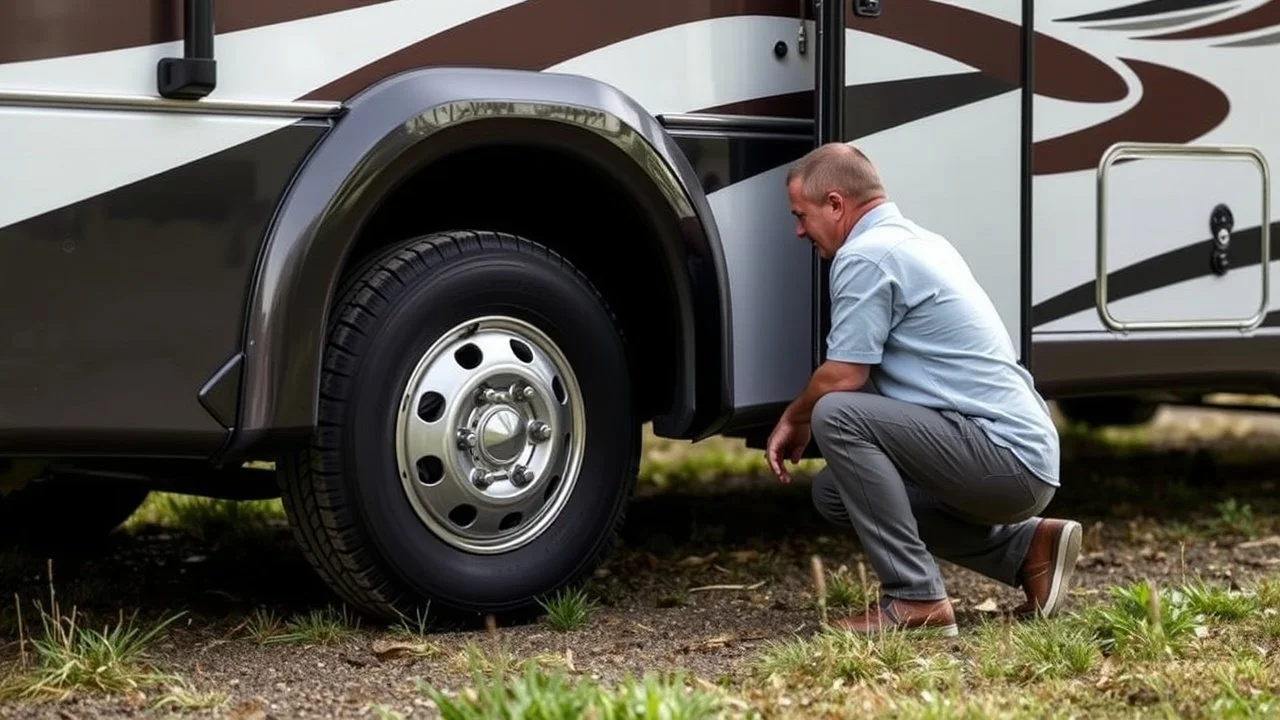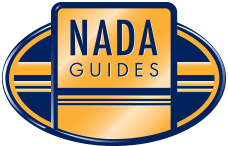Are you dreaming of hitting the open road and exploring the great outdoors but worried about the high costs of purchasing a camper outright?
If so, you might want to consider an exciting option: rent to own campers.
This flexible arrangement offers outdoor enthusiasts a unique opportunity to enjoy the adventure of camping while gradually working towards ownership.
In this ultimate guide, we’ll delve into the world of rent to own campers, exploring the benefits, understanding the process, and helping you make an informed decision when it comes to your camping needs.

Key Takeaways
Rent to own campers offer a flexible solution for outdoor enthusiasts.
Choosing rent to own allows you to enjoy camping without the full financial commitment of ownership.
Understanding the rent to own process is crucial for maximizing benefits and avoiding pitfalls.
Evaluating your camping needs helps tailor your choice of camper to your lifestyle and adventures.
Regular maintenance is essential for ensuring your rent to own camper remains in good condition throughout its use.
Introduction to rent to own Campers
Rent to own campers have become an increasingly popular option for outdoor enthusiasts looking to explore the great outdoors without the hefty upfront costs of purchasing a camper outright.
This innovative arrangement allows customers to rent a camper for an agreed period while simultaneously working towards eventual ownership.
The appeal of rent to own campers lies in the flexibility and accessibility they offer, making it easier for families and adventurers to embark on journeys without the long-term commitment associated with traditional purchases.
Whether planning a weekend getaway or crossing state lines for an extended adventure, rent to own campers provide a practical solution that enables you to enjoy the freedom of camping without breaking the bank.
Benefits of Choosing rent to own
Rent to own campers offer an attractive alternative for outdoor enthusiasts looking to enhance their travel experiences without committing to a significant upfront investment.
One of the primary benefits is flexibility; it allows individuals to try out different types of campers to see which one perfectly suits their needs and lifestyle before making a long-term commitment.
Additionally, rent to own arrangements typically include a portion of each payment going toward the eventual purchase, making it a savvy financial decision for those who might be uncertain about making a full purchase right away.
This option also provides the benefit of maintenance and support from rental companies, ensuring that you have a well-maintained vehicle for your adventures.
Furthermore, renting to own can help build credit, as regular payments can reflect positively on your credit history, which is essential for future financial endeavors.
Overall, choosing rent to own campers can be a cost-effective way to enjoy the freedom of the open road while minimizing the risks associated with a hefty investment.
'Not all those who wander are lost.' – J.R.R. Tolkien

How Does the rent to own Process Work?
The rent to own process for campers offers a flexible and accessible option for those looking to enjoy the great outdoors without a hefty upfront investment.
Initially, interested buyers can find a selection of rent to own campers through various dealerships or online platforms specializing in recreational vehicles.
Once a suitable camper is selected, a rental agreement is established, where the renter pays a monthly fee that contributes towards the eventual purchase of the camper.
Typically, the rental terms can range from a few months to a couple of years, allowing users to utilize the camper during this period.
It’s crucial to review the contract carefully; most agreements specify a purchase price, and the rental payments usually accumulate as equity towards that final cost.
Upon completion of the rental term, the renter has the option to buy the camper at the predetermined price or return it to the dealer.
This process not only provides the opportunity to test the camper's condition and suitability for personal use but also helps potential buyers manage their budget effectively, making it a popular choice among outdoor enthusiasts.
Evaluating Your Camping Needs
When considering the option to rent to own campers, it's crucial to first evaluate your camping needs.
Understanding your specific requirements will help ensure that you select the right camper that caters to your lifestyle and preferences.
Ask yourself essential questions such as how often you plan to go camping, the size of your family or group, and the amenities that would enhance your experience, like a fully equipped kitchen or a larger living space.
Additionally, consider the types of terrains you’ll be exploring—some campers are better suited for rugged backcountry adventures while others are perfect for family-friendly RV parks.
By thoroughly assessing your camping needs, you can make an informed decision when it comes to renting to own campers that will provide you with the adventures you desire for years to come.
Factors to Consider When Renting to Own
When considering the option to rent to own campers, several critical factors come into play that can impact your overall experience and satisfaction.
First and foremost, it's essential to evaluate your budget and financing options.
Determine how much you can afford for both the rental payments and any potential down payments that may be required.
Additionally, pay close attention to the terms of the rental agreement; ensure you understand the length of the rental period and the progression toward ownership.
Another vital factor is the condition and features of the campers available for rent.
Look for well-maintained models that meet your needs, whether for weekend getaways or extended trips.
Lastly, consider the reputation of the rental company—choose a provider known for excellent customer service, transparency, and support.
By taking these factors into account, you can make an informed decision that aligns with your lifestyle and outdoor adventure goals.
Maintaining Your rent to own Camping Vehicle
Maintaining your rent to own campers is crucial to ensure a long-lasting and enjoyable experience on the road.
Regular upkeep not only extends the lifespan of the vehicle but also keeps it in optimal condition for your adventures.
Start by performing routine inspections on the exterior and interior; this includes checking for any dents, rust, or wear and tear that could develop over time.
Keeping the fluids topped up—such as oil, coolant, and brake fluid—is essential in preventing mechanical issues.
Don’t forget to pay special attention to the tires; ensure they are properly inflated and have adequate tread.
Additionally, cleaning your camper’s interior regularly helps preserve its value and provides a comfortable environment during your travels.
Lastly, familiarize yourself with the manufacturer’s maintenance schedule.
Following these guidelines will make your rent to own campers not only a practical choice but also a reliable companion for all your outdoor escapades.

Conclusion: Making the Most of Your rent to own Experience
In conclusion, making the most of your rent to own campers experience requires careful planning and informed decision-making.
It’s important to thoroughly research different camper models and understand the specifics of the rental agreement, including payment structures and maintenance responsibilities.
By choosing reputable rental companies and considering your personal needs—such as the size of your family and the types of outings you envision—you can select a camper that truly enhances your outdoor adventures.
Engaging in this innovative rental model also allows you to explore various options before committing to a purchase, ensuring that you find the perfect fit for your lifestyle.
Ultimately, with the right approach, rent to own campers can serve as a fantastic stepping stone towards ownership and enriching your travel experiences.
Frequently Asked Questions
What are rent to own campers?
Rent to own campers are recreational vehicles that allow you to rent a camper with the option to purchase it at the end of the rental term.
This flexible arrangement lets you enjoy camping without the upfront costs of buying a camper outright.
What are the benefits of choosing rent to own campers?
Some benefits include the ability to try out different campers before committing to a purchase, lower initial costs compared to buying, and the flexibility to decide if you want to keep the camper or return it after the rental period.
How does the rent to own process work?
The process typically involves selecting a camper, paying a security deposit or initial rental fee, and then making regular rental payments that may contribute towards the eventual purchase price if you decide to buy.
What factors should I consider when renting to own a camper?
Consider factors such as your camping frequency, desired camper size and amenities, payment terms, maintenance responsibilities, and whether the rental payments are applied towards the purchase price.
How can I maintain my rent to own camping vehicle?
Maintaining your rent to own camper involves regular inspections, cleaning, timely repairs, and following manufacturer guidelines.
It’s also important to keep up with necessary maintenance to ensure a smooth rental experience and potential purchase.
About NoCredit Campers
NoCredit Campers specializes in providing affordable RV and camper financing solutions for customers with all credit backgrounds. Our mission is to help everyone experience the joy of RV ownership, regardless of their credit history. With a wide selection of campers, travel trailers, and motorhomes available through flexible rent-to-own and buy-here-pay-here options, we make your camping dreams a reality. Visit us at https://nocreditcampers.com to explore our inventory and learn more about our easy financing options. Adventure awaits – let NoCredit Campers be your gateway to the great outdoors!
















